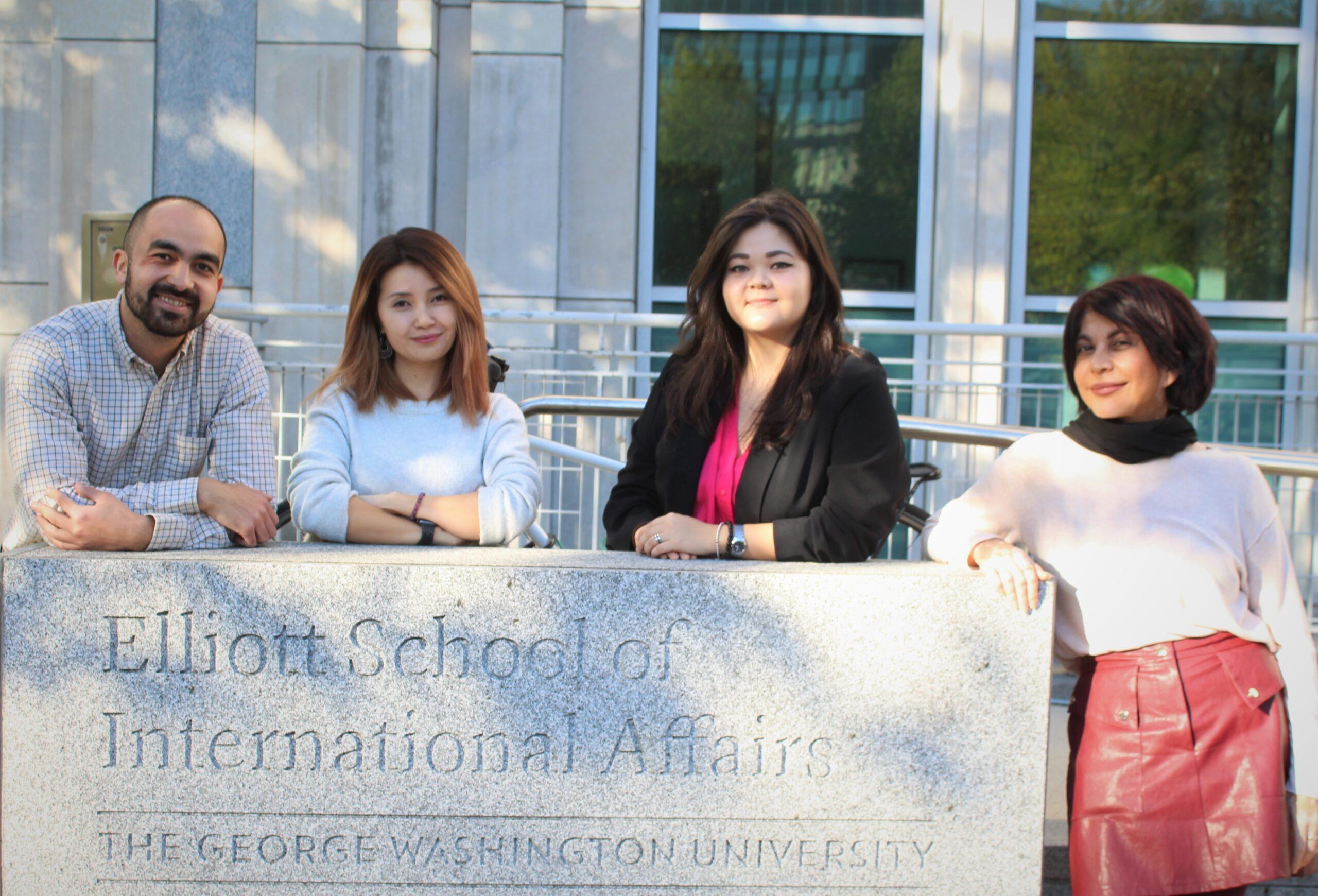The Central Asia Program is proud to announce our CAAFP 2019 Fellows’ Final Research Presentation. Join us for a half-day seminar featuring our scholars from Tajikistan, Kyrgyzstan, and Kazakhstan as they present their research on the current social and political changes brought by youth in Central Asia. The seminar will be followed by a reception.
PROGRAM OVERVIEW
4:00-5:00 PM
“Choosing Your Battles: Different Languages of Kazakhstani Activism,” by Nafissa Insebayeva, Japanese Government Scholarship (MEXT) PhD Candidate at the University of Tsukuba, Japan.
On March 19th, 2019, Nursultan Nazarbayev, the first president of the Republic of Kazakhstan, announced his resignation as the nation’s leader after nearly three decades in office. In the months that have followed, the country has witnessed an unprecedented number of protests and demonstrations: from youth digital activism campaigns and protest art to “solitary pickets” and rallies. While various forms of activism existed long before Nazarbayev’s resignation, it is the relative scale of mass participation, wide media coverage, and an emerging sense of urgency that make post-Nazarbayev instances of youth civic engagement a particular interest. This study explores how themes and discourses of Kazakhstani youth activism vary depending on the language, and it aims to shed light on differences and similarities between Kazakh-language and Russian-language civic engagement.
“Unveiling Girls’ Madrasah in Kyrgyzstan: The Drivers to Study in Religious Schools,” by Aichurek Kurmanbekova, Independent Researcher in Kyrgyzstan.
Over 100 religious educational institutions are registered in Kyrgyzstan in 2019, which is almost two times more than in 2013. In fact, there are likely even more religious schools as many are not registered or officially recognized. Despite the growing demand for religious education, these schools do not have a state educational license. Thus, graduates of madrasahs do not receive an official degree and subsequently lack the chance to continue further studies and/or find a job. Every year, about 4,000 young girls graduate from these madrasahs. They remain limited in their decisions and work/study opportunities in comparison to men. This paper discusses the main drivers that push girls to study in madrasahs and examines the issues they face.
5:00-6:00 PM
“Digital Generation and Startups in Tajikistan,” by Ilhom Aliev, former Executive Director of the American Chamber of Commerce in Tajikistan.
A sudden flourishing of the startup scene is emerging in Tajikistan. Startup seminars, talks, forums, hackathons, and conferences are now organized on regular basis. Since 2015, innovation accelerators have been appearing, local IT academies have been formed, and various co-working spaces have emerged. The quick rise of local startups—such as Alif Sarmoya, somon.tj, 55 Group, and Shedevr—shows a shift in young people’s aspirations to enter the private sector. These young companies are setting up new standards in the market, often serving as role models and shaping young people’s values towards entrepreneurship and empowerment. This presentation will discuss the emerging startup ecosystem of Tajikistan and offer recommendations for its further development.
“Tajik Youth Lead Social Change,” by Lola Ulugova, Independent Art Curator and Art Activist in Tajikistan.
This presentation explores the role of youth in developing a new art scene in Tajikistan. While the state promotes art that expresses “national traditions” and remains in the framework of a retraditionalization of values, some of the country’s youth prefer to use art to discuss the different social, political, and gender-related issues facing the country—in certain cases, even leading to the form of direct protest. This paper calls for a dialogue between the Tajik state’s structure and the country’s young generation of artists in order to develop shared platforms for modern art to express itself.
6:00-7:00 PM – Reception
About Our Fellows
